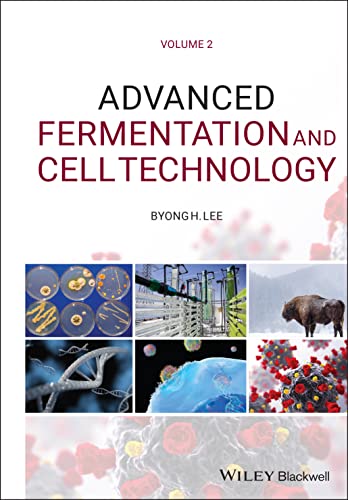

Most ebook files are in PDF format, so you can easily read them using various software such as Foxit Reader or directly on the Google Chrome browser.
Some ebook files are released by publishers in other formats such as .awz, .mobi, .epub, .fb2, etc. You may need to install specific software to read these formats on mobile/PC, such as Calibre.
Please read the tutorial at this link: https://ebookbell.com/faq
We offer FREE conversion to the popular formats you request; however, this may take some time. Therefore, right after payment, please email us, and we will try to provide the service as quickly as possible.
For some exceptional file formats or broken links (if any), please refrain from opening any disputes. Instead, email us first, and we will try to assist within a maximum of 6 hours.
EbookBell Team

5.0
20 reviewsA comprehensive and up-to-date reference covering both conventional and novel industrial fermentation technologies and their applications
Fermentation and cell culture technologies encompass more than the conventional microbial and enzyme systems used in the agri-food, biochemical, bioenergy and pharmaceutical industries. New technologies such as genetic engineering, systems biology, protein engineering, and mammalian cell and plant cell systems are expanding rapidly, as is the demand for sustainable production of bioingredients, drugs, bioenergy and biomaterials. As the growing biobased economy drives innovation, industrial practitioners, instructors, researchers, and students must keep pace with the development and application of novel fermentation processes and a variety of cell technologies.
Advanced Fermentation and Cell Technology provides a balanced and comprehensive overview of the microbial, mammalian, and plant cell technologies used by the modern biochemical process industry to develop new and improved processes and products. This authoritative volume covers the essential features of advanced fermentation and cell technology, and highlights the interaction of food fermentation and cell culture biopharmaceutical actives. Detailed chapters, organized into five sections, cover microbial cell technology, animal and plant cell technology, safety issues of new biotechnologies, and applications of microbial fermentation to food products, chemicals, and pharmaceuticals. Written by an internationally-recognized expert in food biotechnology, this comprehensive volume:
Advanced Fermentation and Cell Technology is an ideal resource for students of food science, biotechnology, microbiology, agricultural sciences, biochemical engineering, and biochemistry, and is a valuable reference for food scientists, researchers, and technologists throughout the food industry, particularly the dairy, bakery, and fermented beverage sectors.